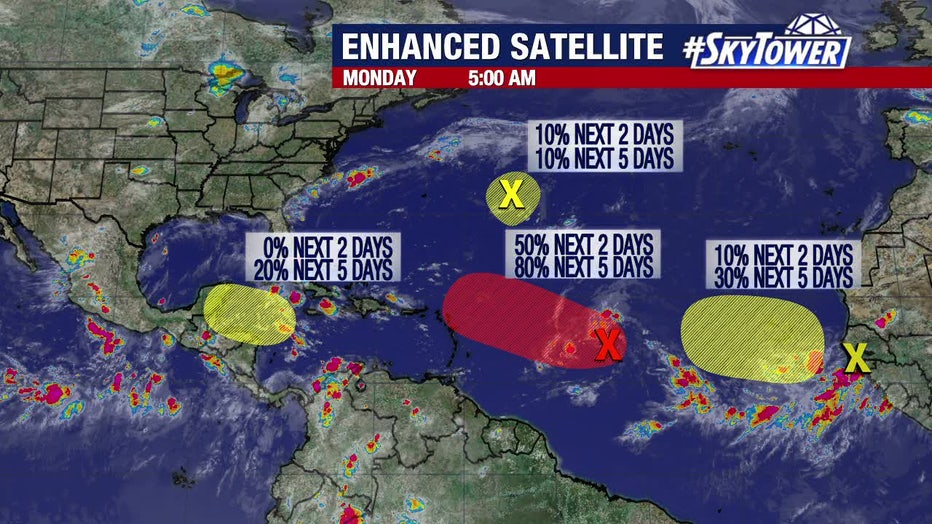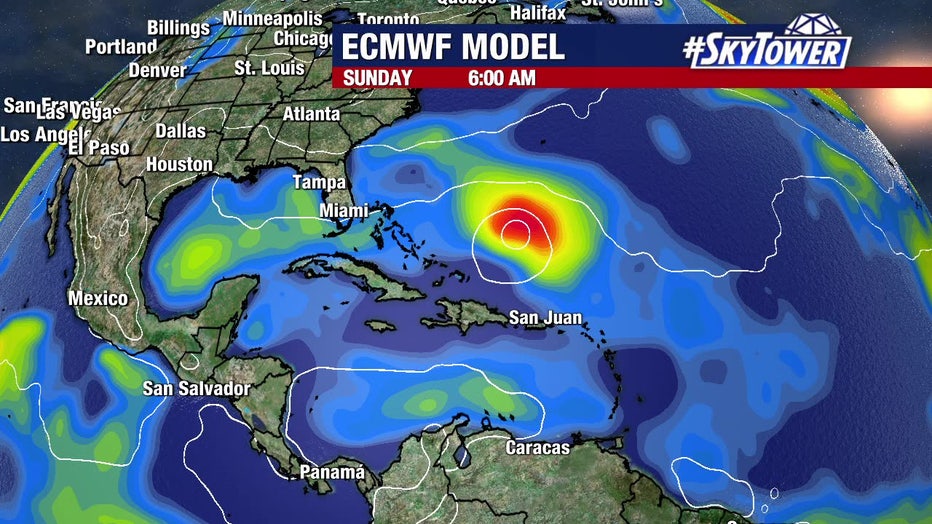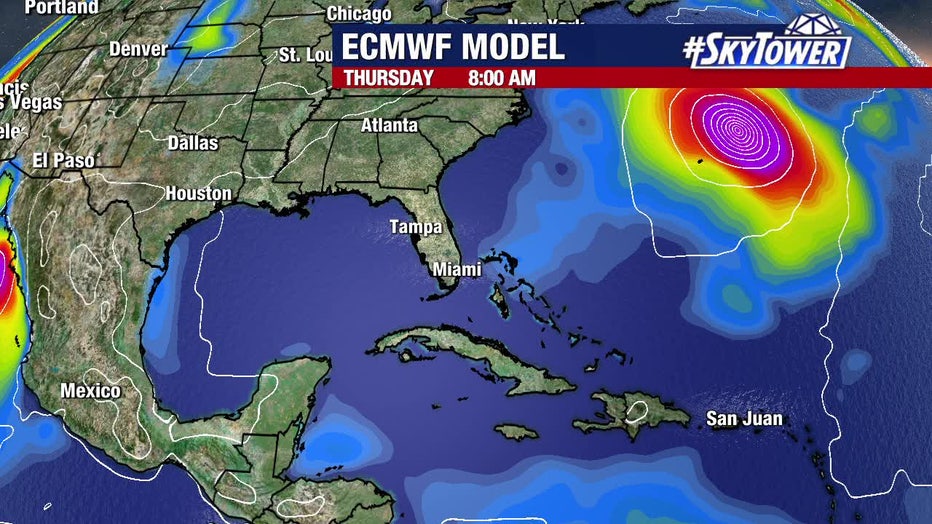Tropics are getting busy in Atlantic, one disturbance has chance of developing in next few days

Today's tropical weather forecast
Meteorologist Jim Weber says things are getting more active in the Atlantic Ocean. There are four disturbances but one has a higher chance of development in the next several days.
TAMPA, Fla. - The two-month quiet spell in the tropics is over. As we head into September, there is lots of activity brewing across the Atlantic.
One particular area is worth watching. Invest 91L is forecast to slowly move west-northwest and has an 80% chance of development in the next several days.

Some dry air and wind shear could limit short-term development. However, both the GFS and Euro models support the disturbance overcoming those factors and possibly developing into a tropical depression as it passes just northwest of the Leeward Islands by the end of the week.
As it takes its time, it will run into complicated weather patterns, says FOX 13 meteorologist Dave Osterberg.
"Initially, it’s going to head west-northwest, probably just north of the islands, but then it gets over here -- just to the east of the Bahamas," he explained. "Then, the models have it pushing it way out to sea or meandering it west-northwest. In the long-term, just something to watch. You can see our two major computer models pretty much in agreement on bringing this just northeast of the Bahamas. Sometime early next week, just something to watch."


It is too early to determine if this area will have any impact on the US but certainly bears close watching.
There is also an area of low pressure in the Caribbean Sea, but the odds are just 20% for development. Additionally, other tropical waves in the central Atlantic and eastern Atlantic similarly have a low-end chance of formation over the next 5 days, per the National Hurricane Center.

Hurricane Andrew 30 years later
Hurricane Andrews hit South Florida 30 years ago and changed everything from building codes to evacuation plans to insurance.
While these aren’t high probabilities, it is certainly a sign the dormant days in the tropics are behind us and we have to be vigilant as things begin heating up across the Atlantic.

